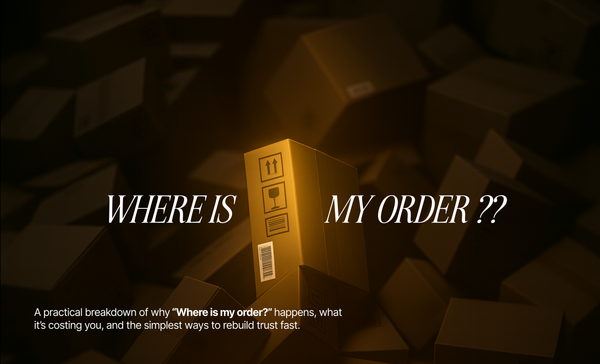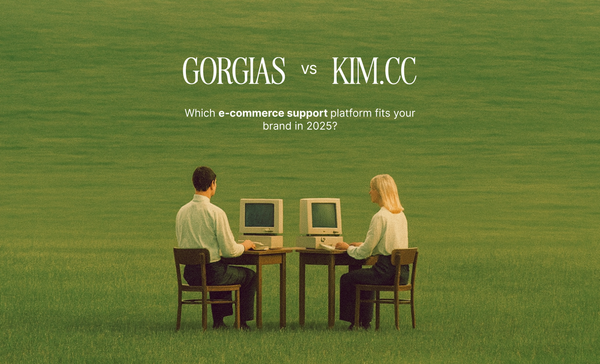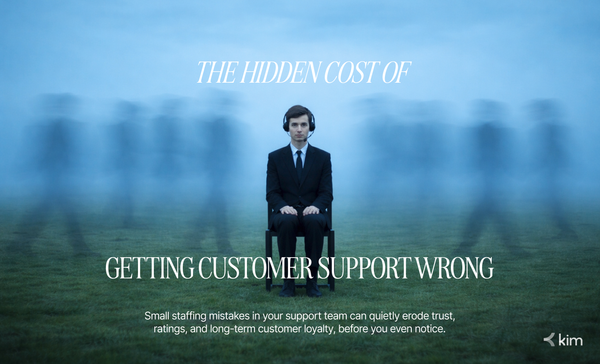How to Hire E-commerce Customer Support That Scales During Peak Season
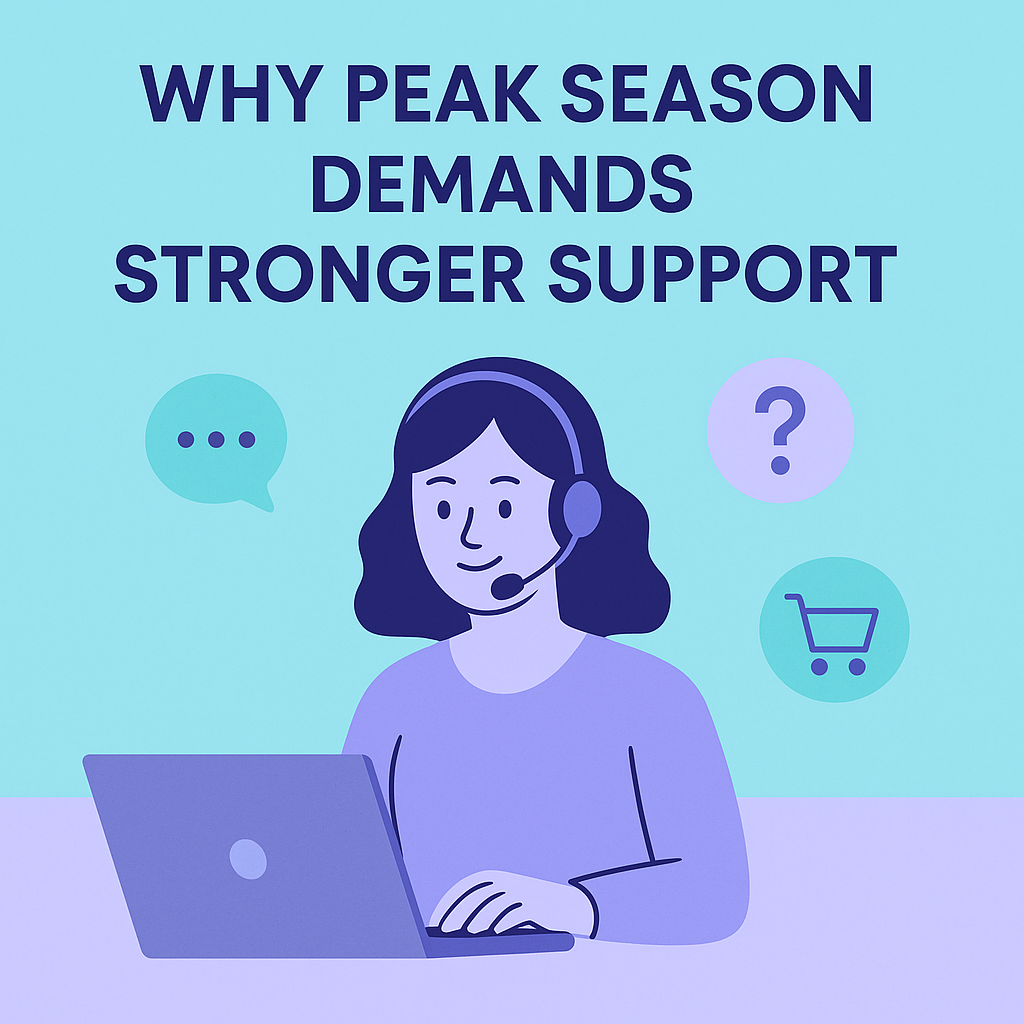
Your peak season can make or break your entire year. Most e-commerce brands spend weeks perfecting ad campaigns, prepping inventory, and building up excitement for the big sale. But when the orders start flowing in, one critical piece often falls apart - customer support.
Hiring customer support that can scale during high-traffic periods is not just an operational choice I feel it is a strategic one. It directly affects conversion, brand loyalty, repeat purchases, and how your business is remembered when the sale ends.
This guide walks you through when and how to hire e-commerce customer support that can actually keep up with your growth, without leaving your customers on hold or your core team overwhelmed (which is what happens in most cases).
Why Peak Season Demands Stronger Support
During promotions, campaigns, and holiday sales, everything moves faster. Website visits go up from 20k visitors a month to 40k or even 50-60k in some cases, average order value increases, and your customer’s expectations obviously rise with it.
It is not just that more people are shopping. They are shopping with urgency. They want answers quickly, and they will not wait around if your team is slow to respond.
Here is what typically changes during peak season:
- Ticket volume can double or triple
- Customers expect faster responses across all channels
- Common issues like delivery times, stock availability, and promo code errors multiply
- First-time buyers who are unfamiliar with your brand need reassurance
If your support isn’t staffed and ready, this leads to slow replies, missed messages, and customer frustration. That can lead into canceled orders, negative reviews, and lost trust.
The worst part? These issues do not just cost you during the sale they usually tend to have a long term impact on a business.
When to Start Hiring for Support and Why It Matters
Many businesses begin thinking about support once their inbox is already overwhelmed. By then, it is often too late.
If you want support that is trained, aligned, and ready to go when sales hit, you need to start early.
The best window to begin hiring is four to six weeks before your peak. This gives you enough time to:
- Review last year’s performance
- Forecast expected support volume
- Decide how many agents or hours of coverage you’ll need
- Source the right help and give them time to get comfortable
Early hiring also allows for soft onboarding. You can gradually introduce agents to your brand tone, FAQs, and workflows without doing it under pressure.
How to Know What Kind of Support You Actually Need
Before you hire, take a close look at the kind of help your customers are likely to need during the sale.
Ask yourself these four questions:
- What channels are most active? Are most of your tickets coming from live chat, email, Instagram DMs, or elsewhere? You may need different support models depending on that.
- What does your traffic pattern look like? Are you getting orders in the middle of the night? Do you notice a surge on weekends? These patterns tell you when coverage matters most.
- What types of tickets dominated last year? Review past ticket logs to see which issues took up the most time. You may not need more people, you might just need help with the repetitive ones.
- Do you need generalists or specialized support? Some businesses need agents with Shopify or Gorgias experience. Others need people who can simply communicate well and solve problems quickly.
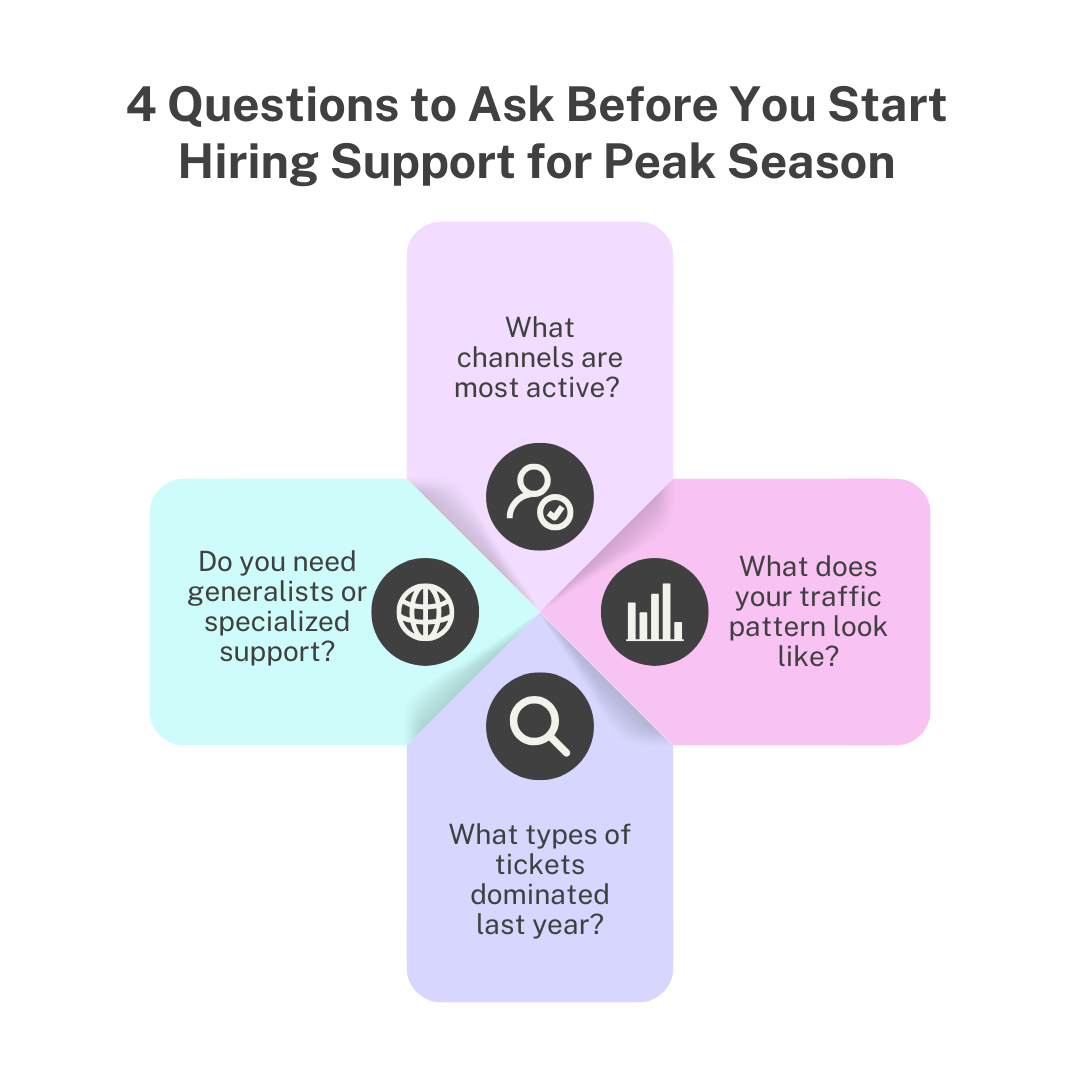
Having this clarity before you hire saves money, time, and frustration. It also helps your support team succeed faster.
What to Look For When Hiring Seasonal Support
Seasonal support agents are different from long-term team members. You are looking for people who can plug in fast, handle volume, and maintain quality during stressful times.
Here are some qualities to prioritize:
- Experience in e-commerce or direct-to-consumer support
They already understand the urgency and the platforms involved. - Clear, professional communication
Support is often the only human interaction your customer has with your brand. Tone matters. - Availability during evenings, weekends, and holidays
Peak issues rarely happen during standard business hours. - Ability to follow structured guidelines
Good agents know how to use templates and macros but also when to adapt. - Calm under pressure
Support during a 3x spike is not easy. You need people who stay level-headed and focused.
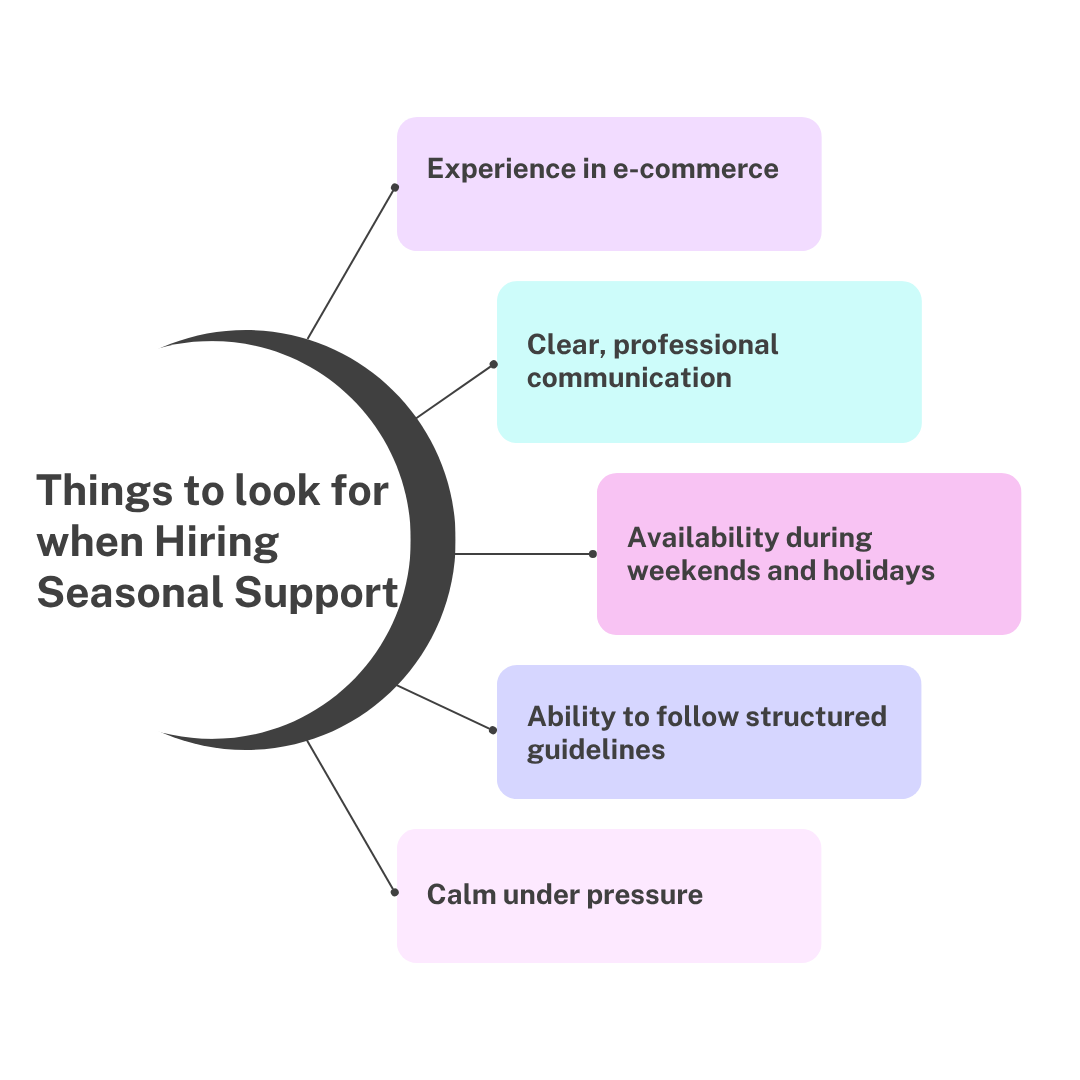
You do not necessarily need full-time employees. Contract agents, remote virtual assistants, and even part-time specialists can all fill gaps as long as they are reliable and well-briefed.
What to Outsource and What to Keep In-House
Smart scaling means knowing what to hand off and what to keep close.
Support tasks that can be outsourced easily:
- Order status updates
- Shipping questions
- Promo code clarification
- Return and refund queries
- Simple “how-to” product questions
These are usually repetitive, templated, and easy to manage with clear documentation.
Tasks to keep in-house or with your core team:
- Escalations involving complaints or negative experiences
- Feedback that could affect product development or policy
- Customer queries related to press, influencer campaigns, or VIP lists
- Anything that requires judgment or brand-sensitive responses
By dividing your support this way, you get the best of both worlds. Your internal team stays focused on what matters most, while your outsourced help keeps the inbox moving and customers satisfied.
Final Thoughts: Plan Now, Not When the Inbox Breaks
Your marketing, product, and logistics might be ready for peak season. But if your customer support team is not, all that work can be undone within a few days of high ticket volume.
This is not about having more people. It is about having the right people, at the right time, with the right plan.
Start early. Hire with clarity. Let your team focus on what they do best. And if you want expert help that is flexible, fast, and scalable, Kim.cc is here to support you.
Ready to handle peak season without the panic?

